Rest, Repair, and Radical Hospitality
By Hanni Hanson
In early 2023, I was reflecting with Compton Foundation’s executive director, June Wilson, and one of our Fellows, Caitlin Brune, on how to close out our relationships with grant partners. With just two years left in the foundation’s lifespan, what would it mean to end those relationships well? How could we best be of service with the time and money we had left?
As we talked, it became clear that what our grant partners needed most was rest. The past six years had been a difficult series of interval sprints through the rise of the MAGA movement, the pandemic, and the challenges of advancing proactive policy in coalition. Many organizations were going through big transitions as both junior and senior staff burned out and moved on. And a big election year was looming. An idea emerged: we could offer leaders a time to rest, rejuvenate, and celebrate how far they had come.
In December that year, we gathered 75 grant partners from 35 organizations for a relaxed three-day retreat in New Orleans. That event, which remains one of my favorite parts of our closing process, was driven by four concepts that made our time together so special.
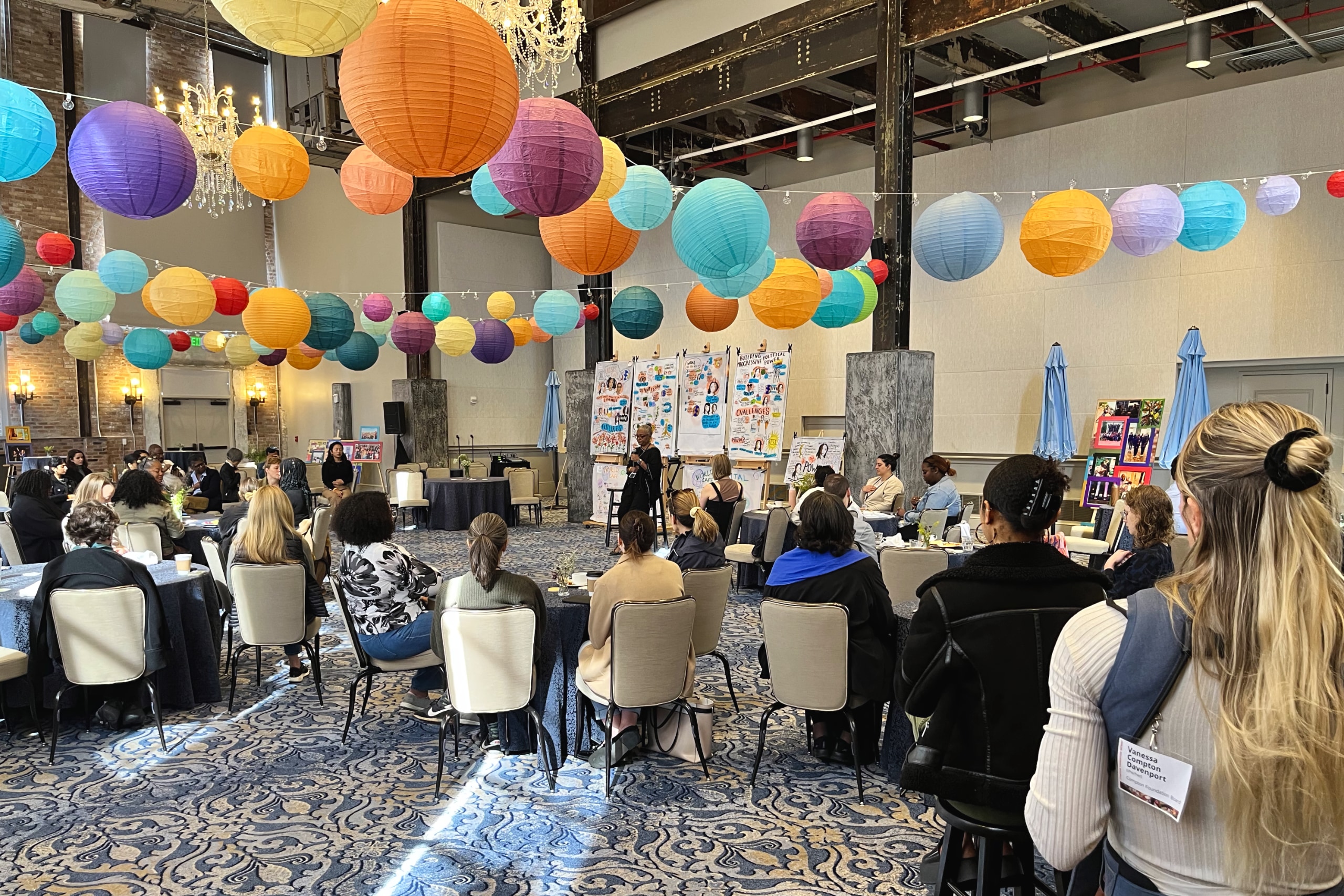
June Wilson leads a group session at the Destinations and Departures retreat. Photo by Bryan Jeffrey Graham.
1. Everything is an invitation, nothing is an obligation.
Our invitation made it explicit that no one was compelled to attend. We knew that, given the power dynamics plaguing philanthropy, an invitation from a funder can feel like an obligation even if that’s not the intent. Over and over, we said: “This is an offering. Come if you want, don’t come if you don’t.” (Our final grant commitments had already been made to each organization, so no one felt they had to show up to get their next grant.) As it stood, about 25 percent of our grantee organizations declined to participate.
For those who did come to New Orleans, we repeated ad nauseum that participating in any part of the agenda was optional too. During the welcome session, June and I told grantees that, if they let everyone back home know they were at a Very Important Funder Conference and couldn’t check email, and then skipped our programming to explore the city, we would be thrilled for them.
In a sector where foundations can build very extractive relationships and routinely demand grantees’ time, expertise, and energy, we made every aspect of the event optional as a way to honor our partners’ agency and center their needs. We learned we had to repeat that nothing was obligatory many times for people to believe that we actually meant it. But when someone excused himself from a strategy conversation so he could go take a nap, everyone in the room applauded.
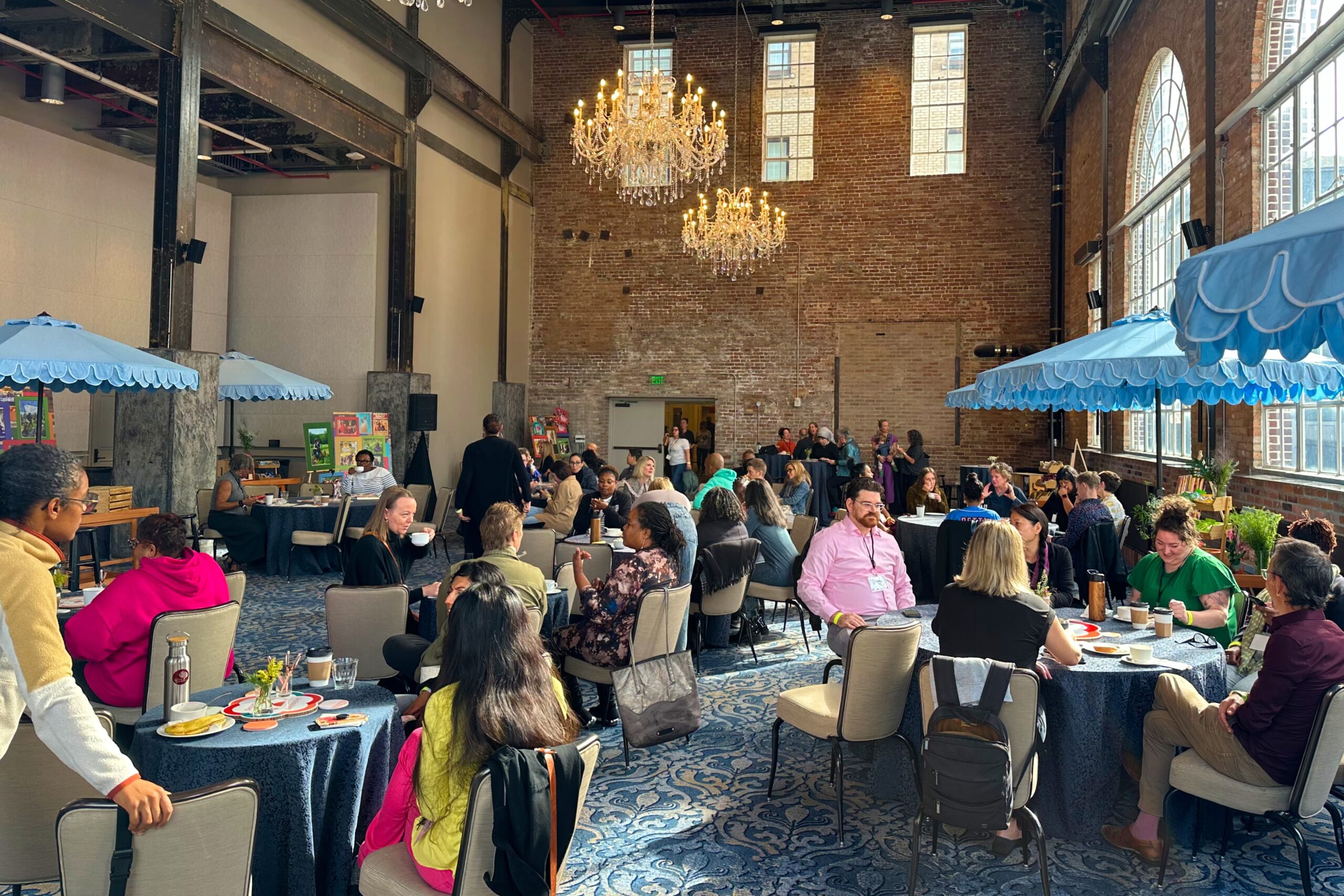
The group gathers in a ballroom set up to look like a public square.
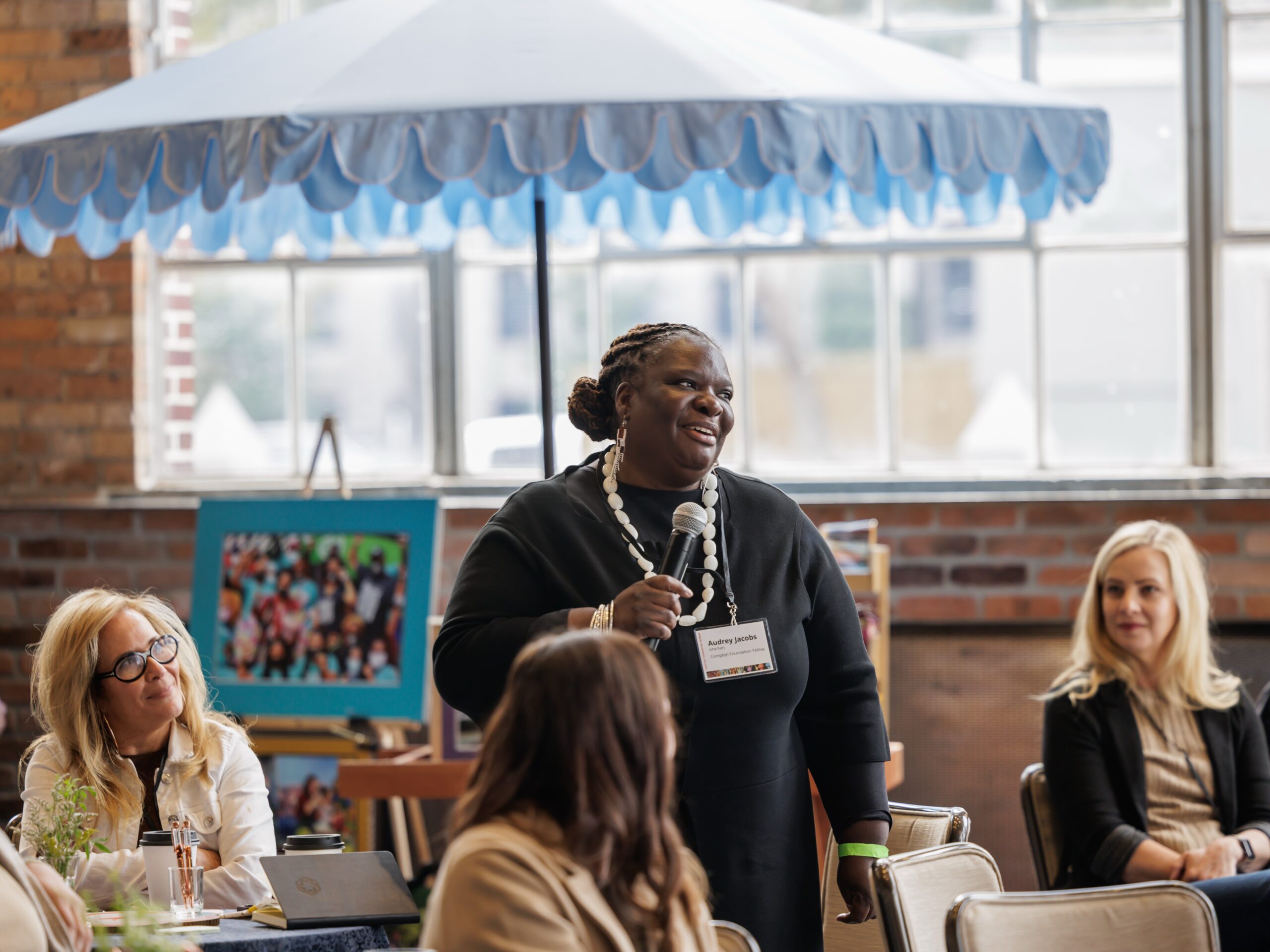
Audrey Jacobs, Compton Fellow, shares a reflection.
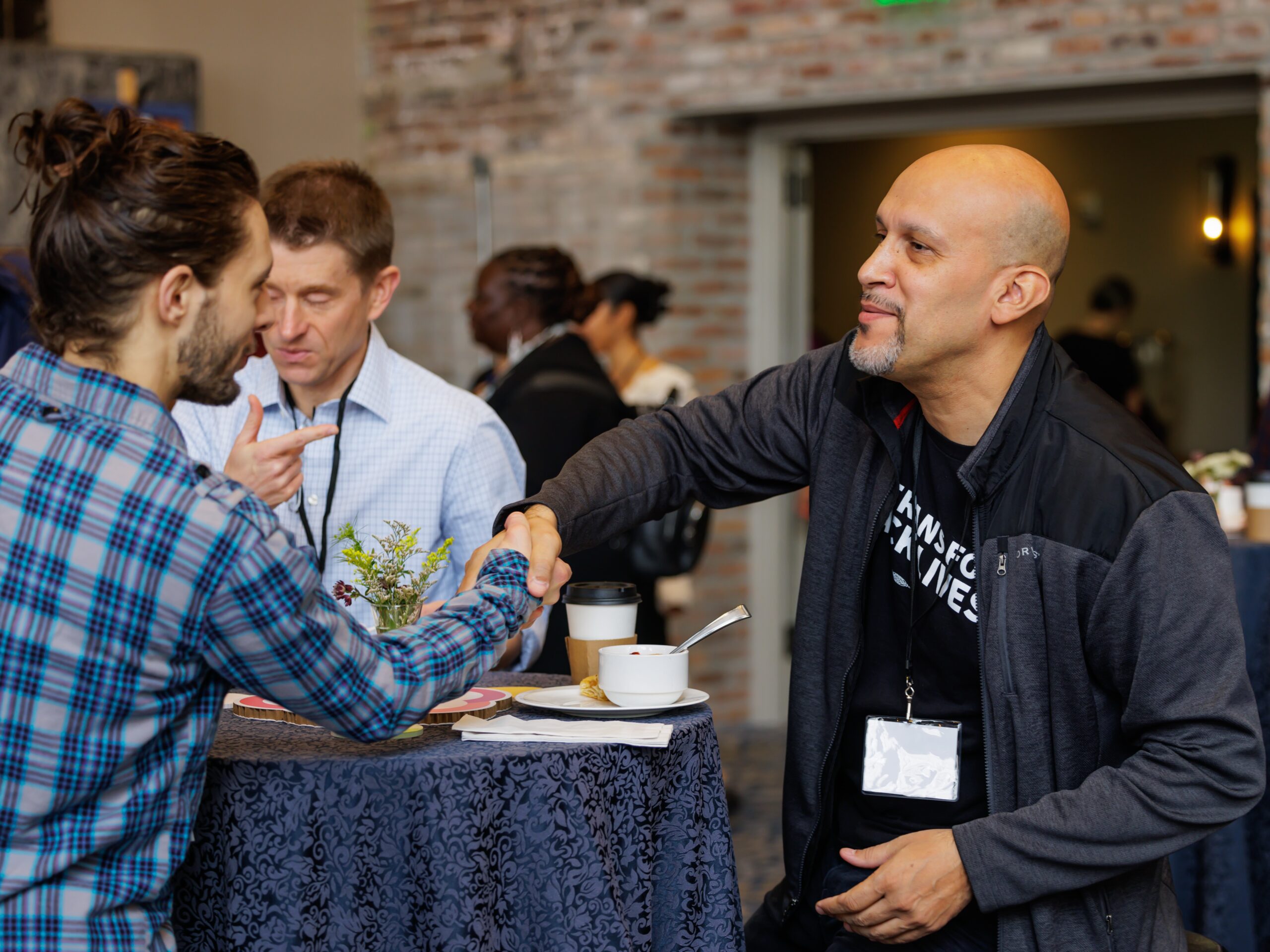
Connecting on the first day of the retreat.
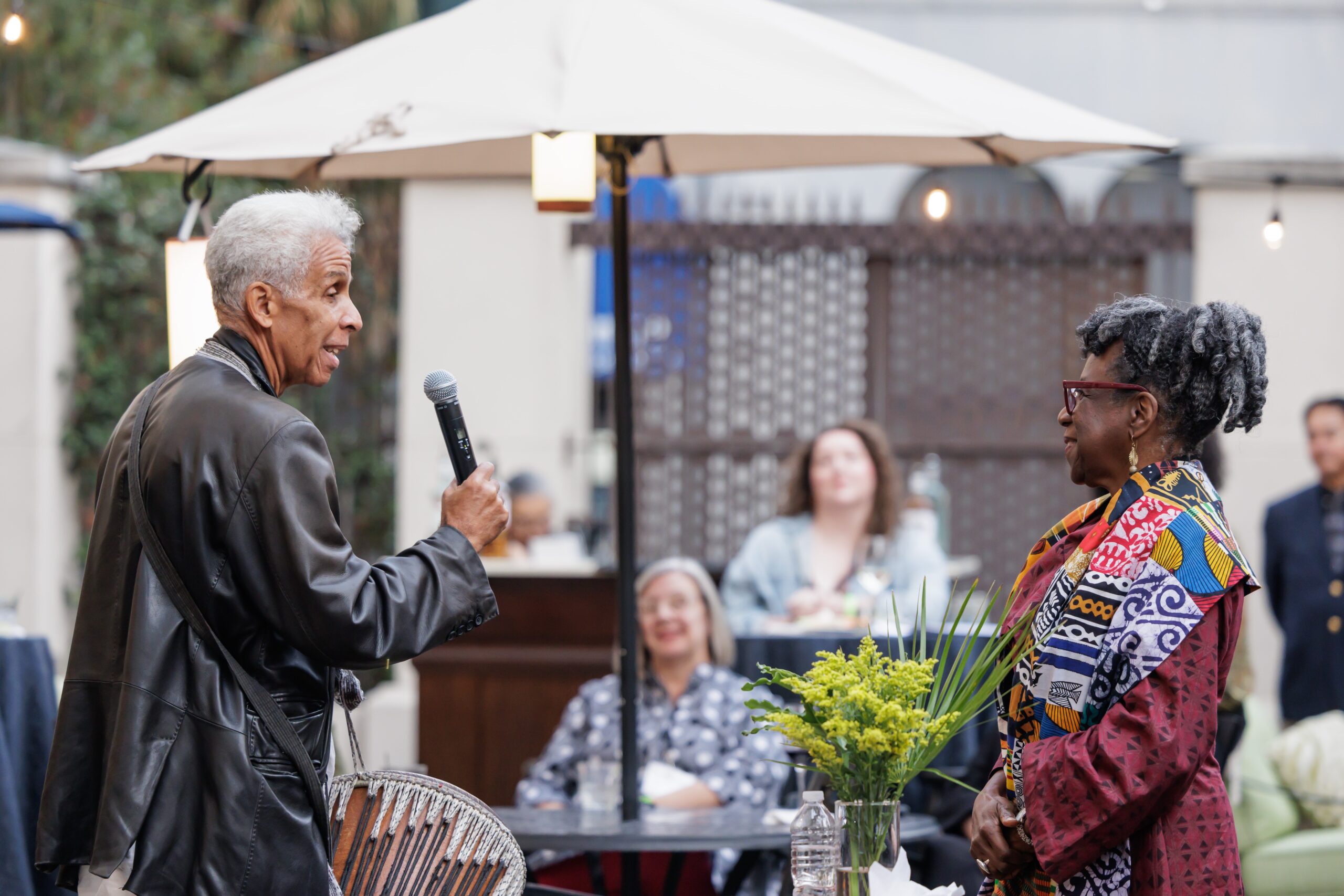
Members of the Congo Square Preservation Society ground us in New Orleans history.
The first full day of the retreat focused on grounding in place and building relationships. Photos by Melisa Cardona.

“You created a beautiful space of belonging and held true to the invitational (non-obligatory) nature of the gathering.”
–Attendee
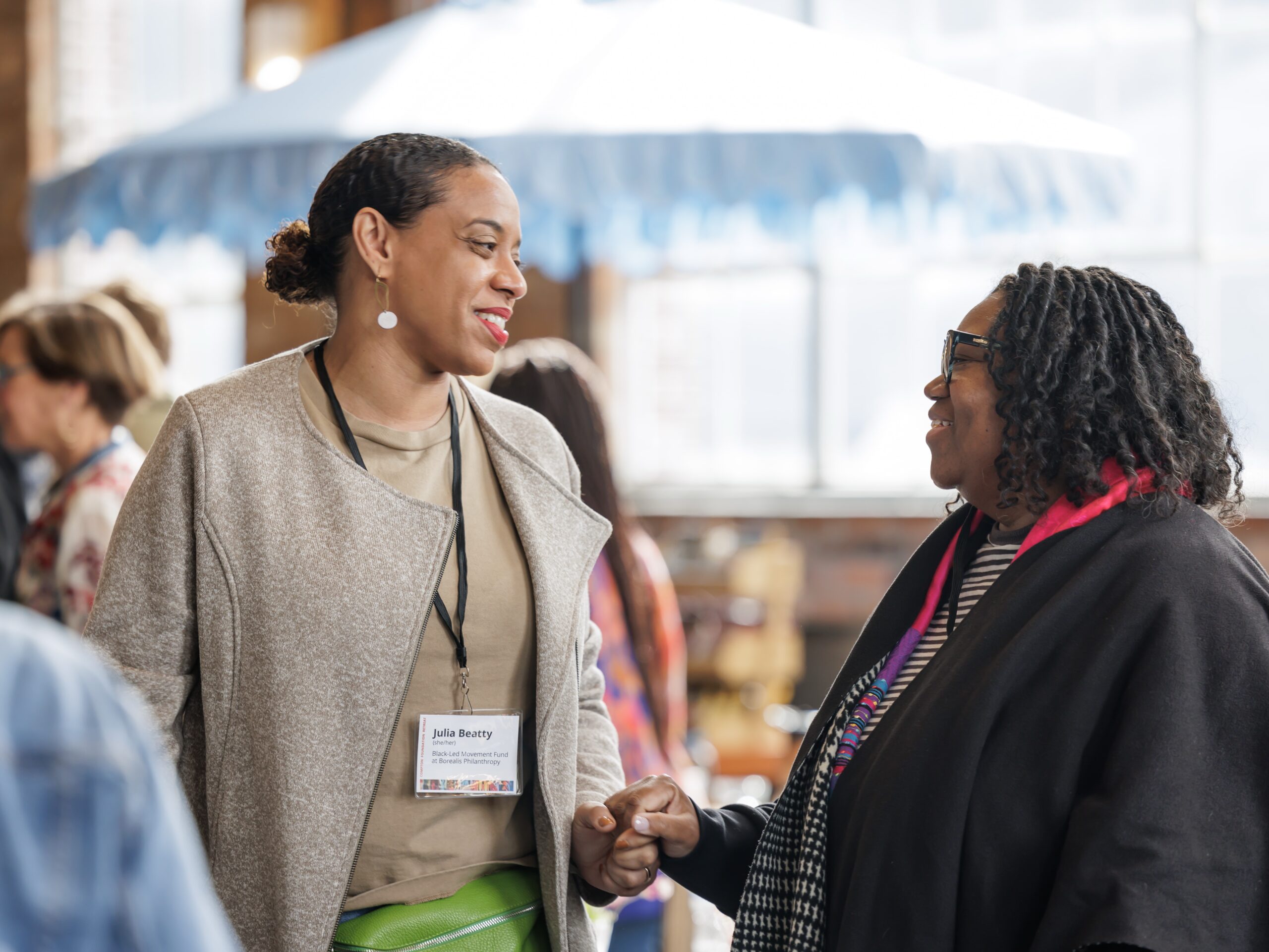
Making new friends.
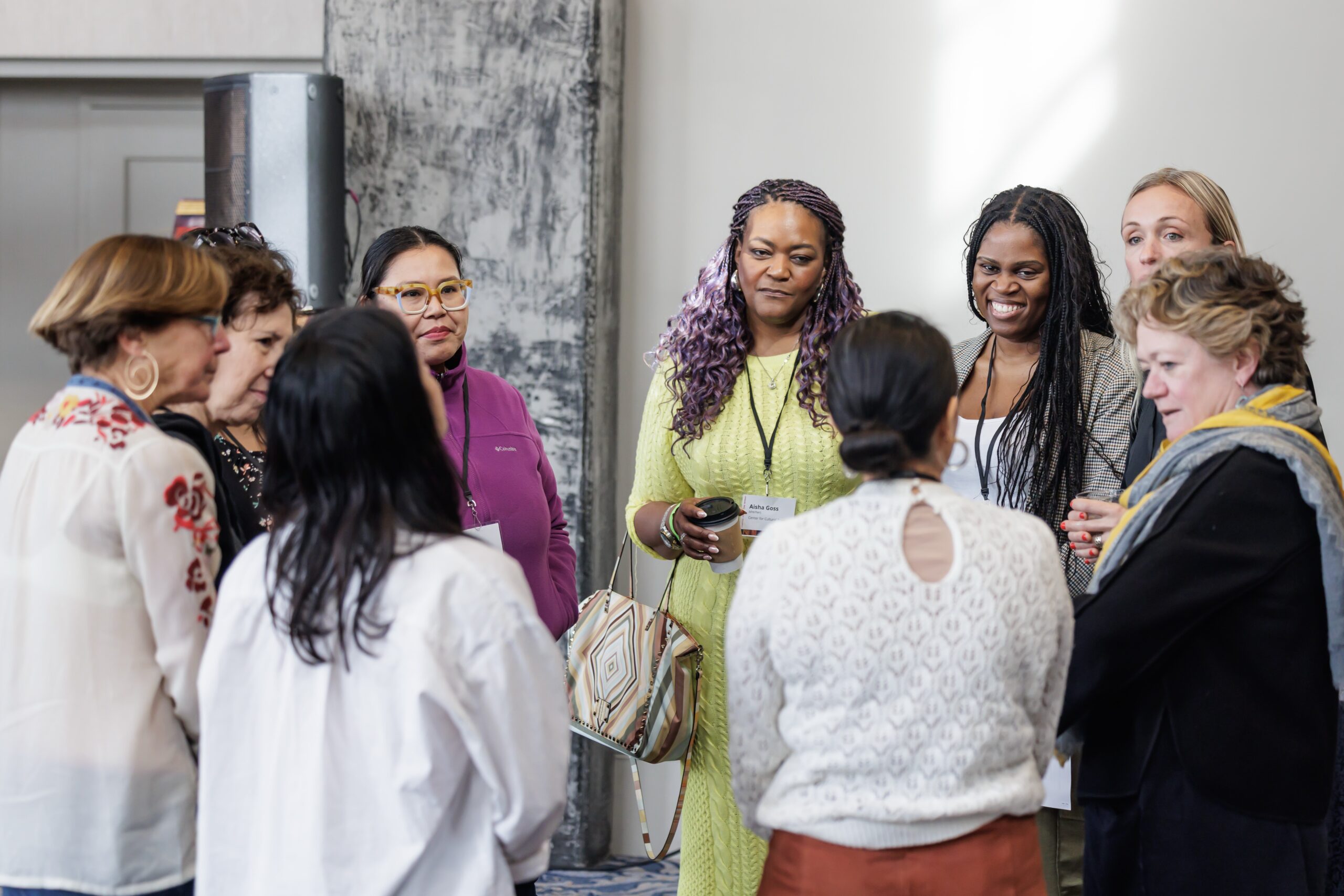
Connecting over narrative strategy.
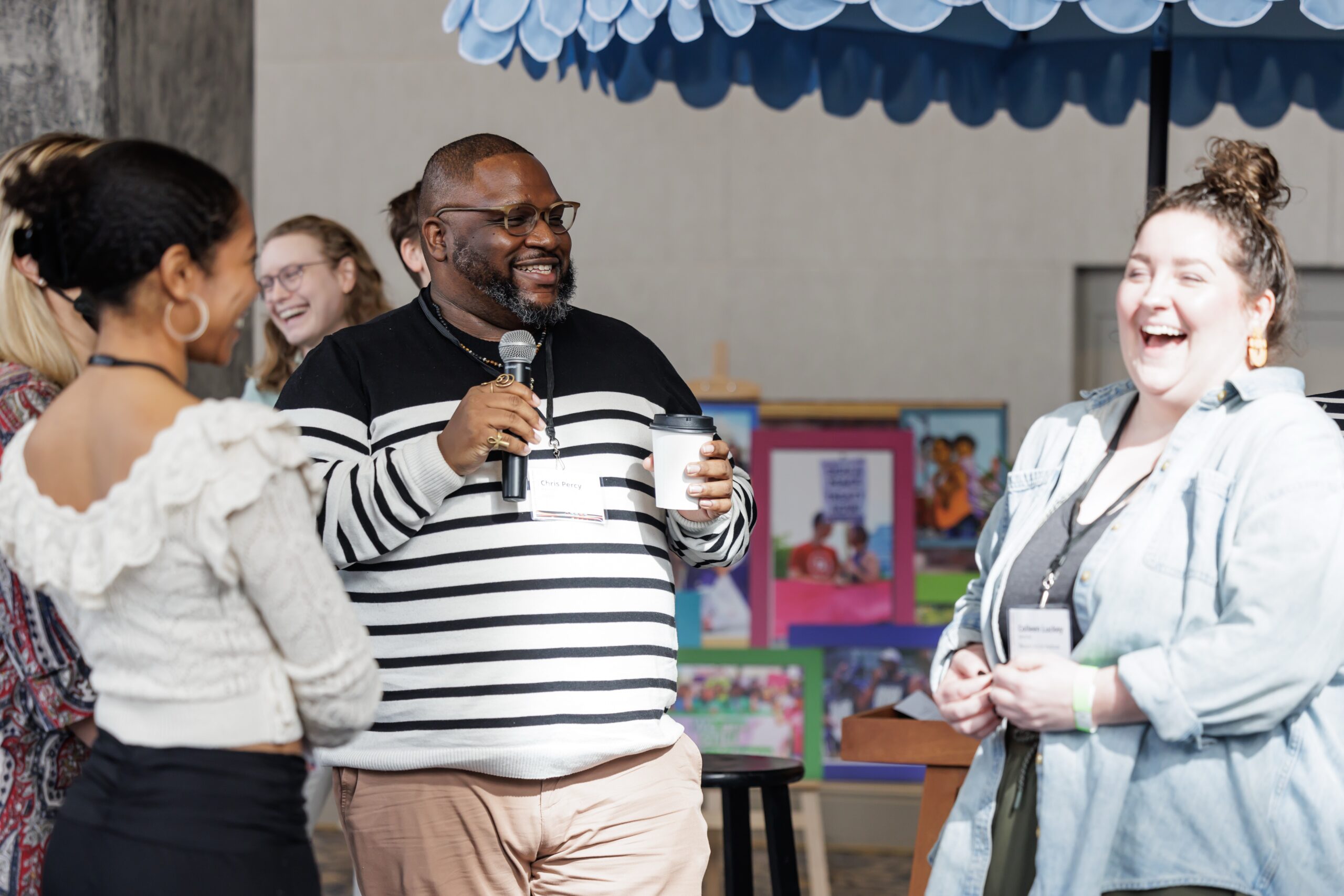
Reflecting back on small group discussion.
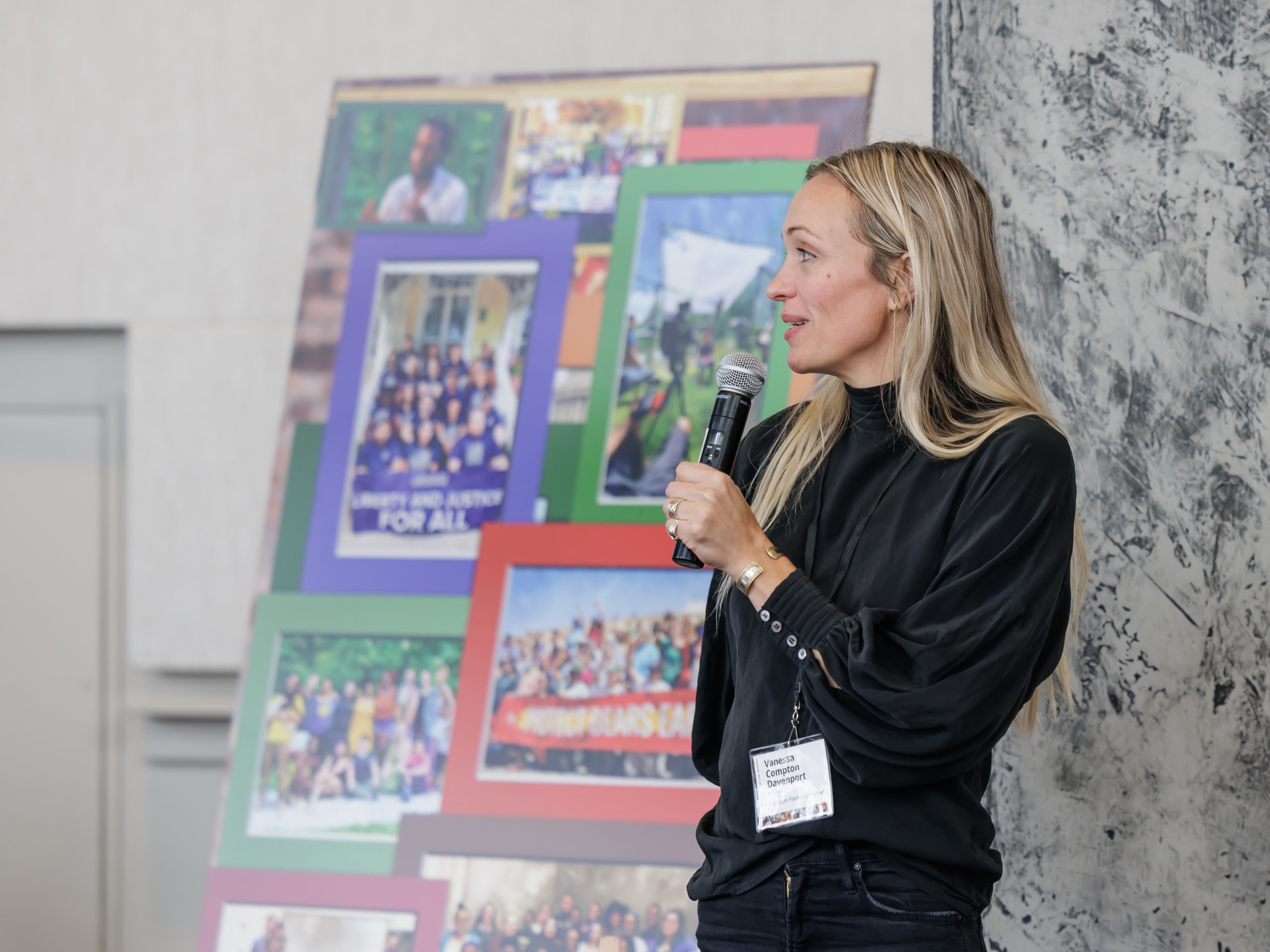
Board Co-Chair Vanessa Compton Davenport shares with the group.
The retreat programming was designed to facilitate connection and cross-pollination of ideas and experiences. Photos by Melisa Cardona.
2. We’re people, not just professionals.
Social justice work is personal by nature—we all do this work because we care—but we know that white-dominant culture and fundraising imperatives can create incentives to posture or compete with others. One major goal in our convening design was to disarm the affectation that can happen across organizations (especially when funders are present) and make room for everyone to show up as their full selves.
For example, we held an offsite dinner on the first day. When they registered, participants picked their favorite choices from a long list of conversation topics that ranged from the deeply personal to the frivolous, which we then used to curate seat assignments. People showed up to the dinner and found themselves at a table full of potential friends ready to dive into a topic of collective interest, like reality TV, working with anxiety, living a life based on intuition, somatic practices, musical theater, or even aliens. (I got this idea from a friend of a friend’s rehearsal dinner, to give credit where it’s due!) The opportunity to connect with a small group on a topic unrelated to work made it clear that no one was expected to be just an organizational representative. They were invited to show up as their silly, profound, and complex selves.
We built on that sense of community later on in our programming. On the second day, we held World Café-style sessions to explore work-related questions participants had told us they wanted to discuss, such as building healthy organizational culture, meeting funding challenges, and how to operate in a constantly changing environment. On our final morning, participants had the opportunity to share a current challenge they were grappling with in a small group and get their peers’ insights on the problem. Having these conversations within a relational context meant we could be more vulnerable and honest together about the work.
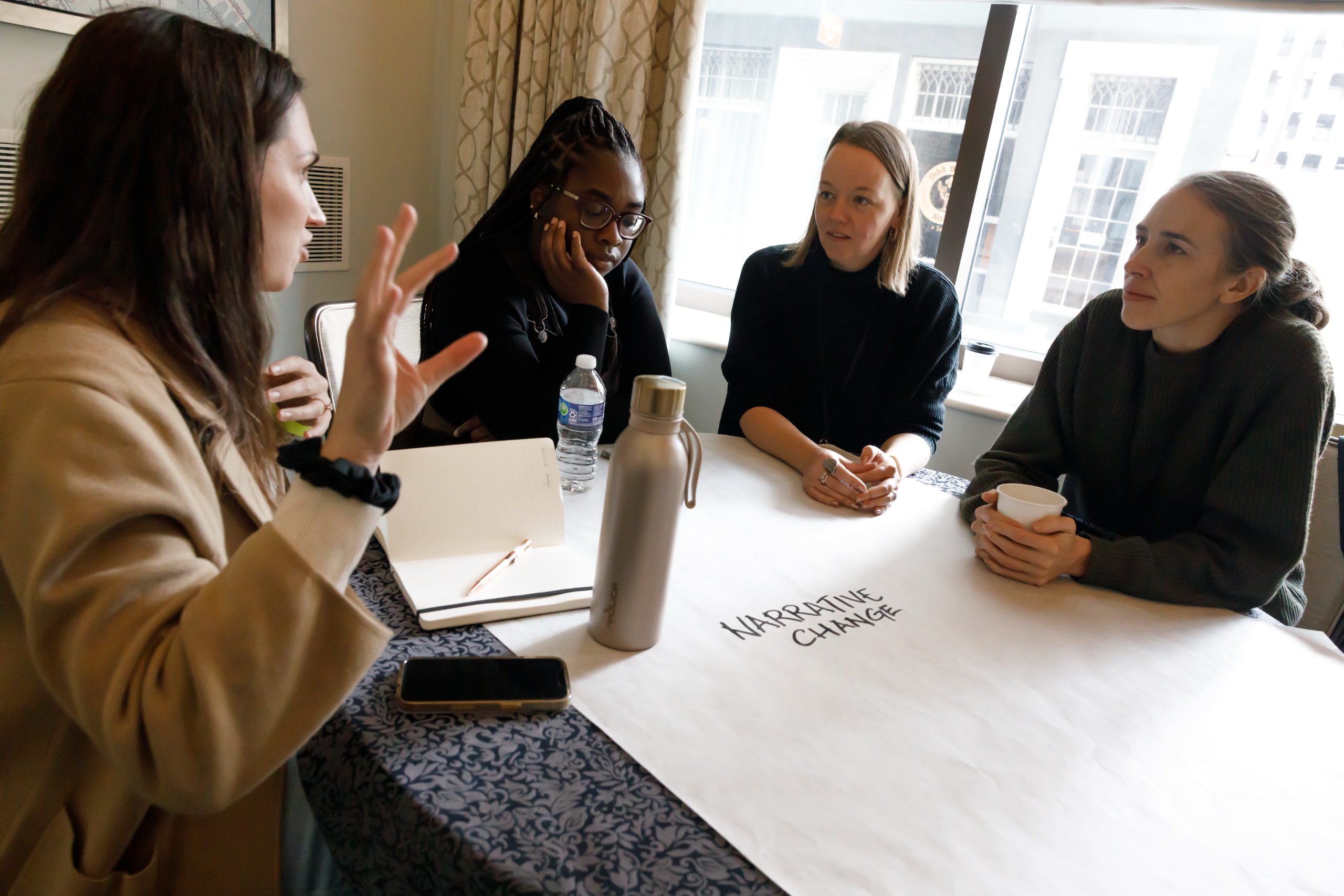
World Café on strategy in volatile environments.
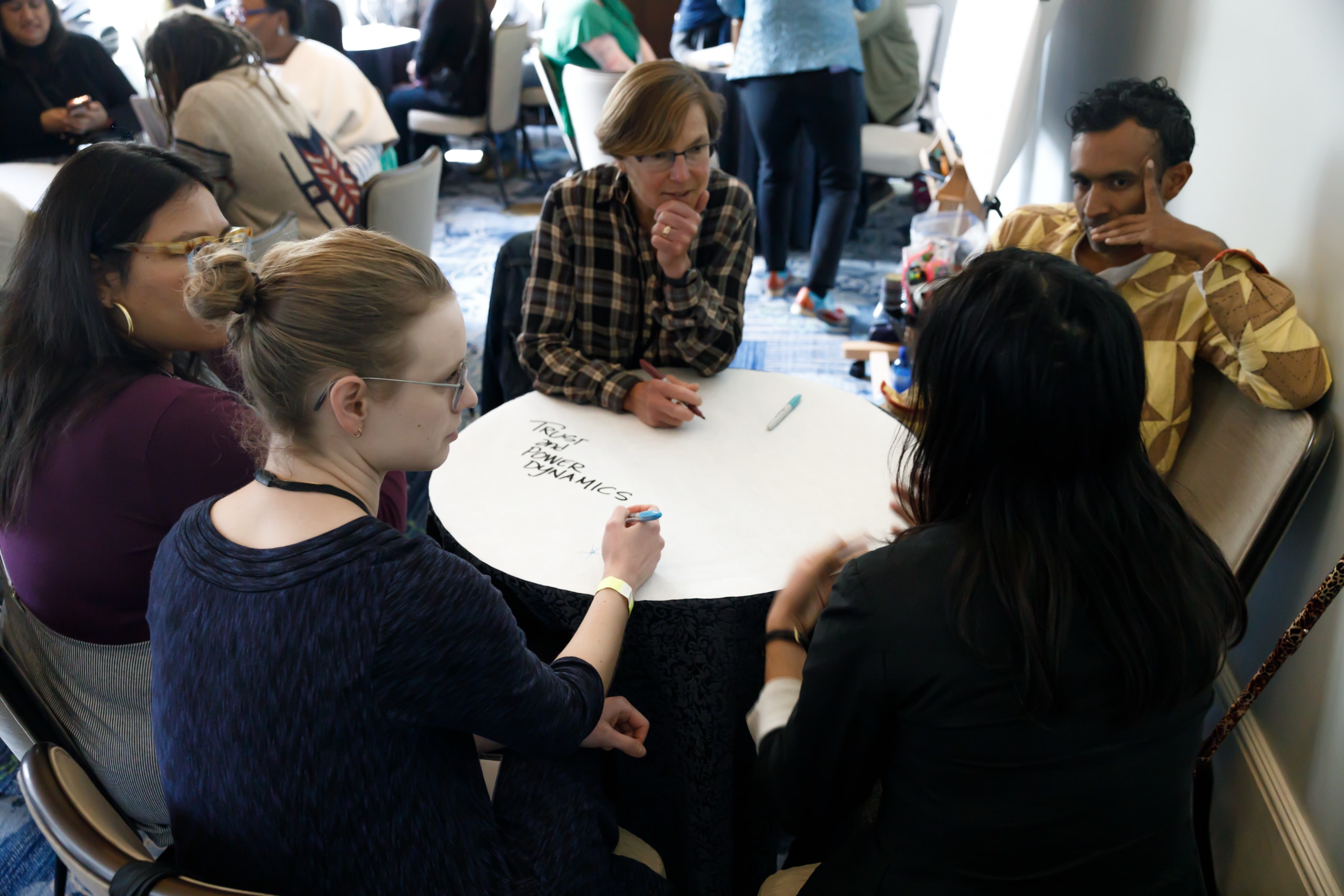
World Café on funding challenges and organizing capital.

“The blending of personal with professional that was evident in what you all brought to the conference freed the rest of us up to acknowledge that our work is an important part of our life and it’s impossible to silo emotion and relationships from career and professional passions. I will take this with me as an experience I seek to recreate in various environments.”
–Attendee
We’re elated that participants are still in touch with people they met at the retreat. We know that those relationships will only serve our collective efforts moving forward.
3. Radical hospitality is a practice.
Throughout the planning process, our team kept returning to a core purpose: to give our grantees the gift of rest and celebration. We wanted to create a sense of care and ease, and mark that this event was something different from a typical funder meeting. To do so, we did our best to infuse radical hospitality into every aspect of the event.
Our consulting agency and idea partner Big Tada came up with the theme “Destinations and Departures” and developed a gorgeous design that made the host hotel’s ballroom feel like a vibrant public square. We had a lounge room with cozy rented furniture, mood lighting, many kinds of snacks, and books to peruse or take home. We paid stipends to ensure we were covering participants’ travel and time. We provided a Lyft credit for each person and took care of all housekeeping and other hotel gratuities to make sure we weren’t creating any out-of-pocket expense.

“The spaciousness. The orientation toward making us feel cared for. The honesty in the room. The care.”
–Attendee
We tried to prioritize comfort, ease, and practicality. We started on a Tuesday morning so participants would have all of Monday to travel. Upon check-in, participants received a welcome bag with an array of gifts to keep them cozy, including a water bottle, a journal, and a travel blanket. We built spacious breaks into the programming every day, retained a photographer to take complimentary professional headshots, and offered one-on-one coaching sessions with our board members for those seeking advice about specific organizational scenarios. The convening wrapped up midday on a Thursday, but participants could choose to check out on Friday if they wanted an extra night in the area. And knowing many participants would bring people along for a subsidized trip to New Orleans, we invited their guests to the last evening’s party—so our grantees’ sweethearts, friends, and children were tearing up the dance floor too.
Vanessa Compton Davenport
Vice President
and Co-Chair
Ellen Friedman
Executive Director
2010-2021
June Wilson
Executive Director
2021-2025
Closing night toasts and speeches by Executive Director June Wilson, Vice President and Co-Chair Vanessa Compton Davenport, and former Executive Director Ellen Friedman. Photos by Melisa Cardona.
4. Foundations have some repairing to do. It’s never too late (or too early!) to start.
When June and I presented the idea for this convening to our board of directors, we got some pushback. “Is this really the best idea,” one asked, “or should we scrap the party and just give every grantee a small supplemental grant instead?”
We forged ahead with the retreat because we believed the offering of space for rest and joy was more urgent and harder to find than an extra $5,000. Nonprofit work is difficult and burnout is a real threat to social justice organizations. Foundations are complicit in perpetuating this situation: practices like restricted and short-term funding, laborious application and reporting processes, and opaque decision-making are making movement leaders’ lives harder.
In this context, we saw the retreat as a way to acknowledge the costs of our partners’ work, to recognize the ways that institutional philanthropy—including the Compton Foundation—has taxed their time and energy, and to offer repair through the chance to rest, play, and connect with each other. It was one of many ways we sought to restructure our grantee relationships in our final years, from doing away with written grant reports to committing to 8 percent compounding increases on multi-year grant installments.
Excerpts from a series of mapping exercises led by Executive Director June Wilson on the first day of the gathering. Photos by Melisa Cardona.